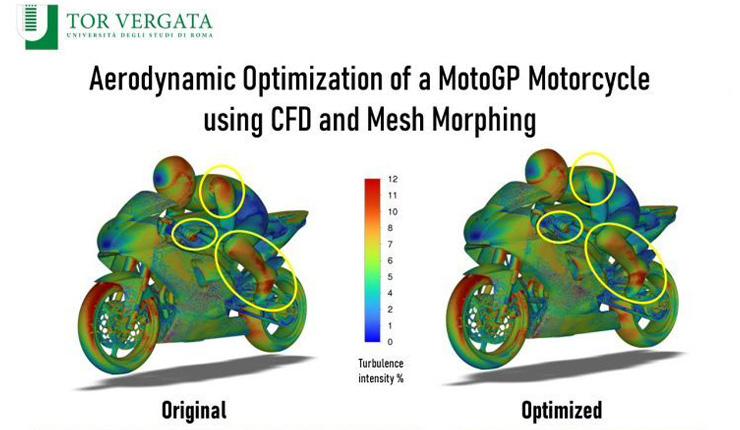The thesis “Aerodynamic Optimization of a MotoGP Motorcycle Using CFD and Mesh Morphing” by Filippo Ricci delves deep into the world of fluid dynamics, focusing on the aerodynamic analysis and optimization of a MotoGP motorcycle, employing the cutting-edge techniques of Computational Fluid Dynamics (CFD) and Mesh Morphing.
The primary objectives of this research are two-fold:
- to reduce the drag coefficient, with the ultimate goal of maximizing speed and minimizing energy dissipation.
- to decrease the lift coefficient, enhancing stability and driveability, critical factors in the world of high-speed racing.
First, a highly accurate CFD model is meticulously created and rigorously validated, pinpointing the areas with the most potential for improvement. Next, changes to the motorcycle’s geometries are simulated, focusing on these critical areas. The secret weapon? Mesh morphing techniques that allow for detailed analysis and modification without the need to build an entirely new model, resulting in significant savings of both time and resources.
Finally, the thesis presents the outcomes of each modification and their cumulative effects, offering a compelling glimpse into the realm of non-linear behavior.
Filippo Ricci’s work represents a significant leap forward in the pursuit of motorcycle aerodynamic excellence.
You can read the presentation and the thesis.



